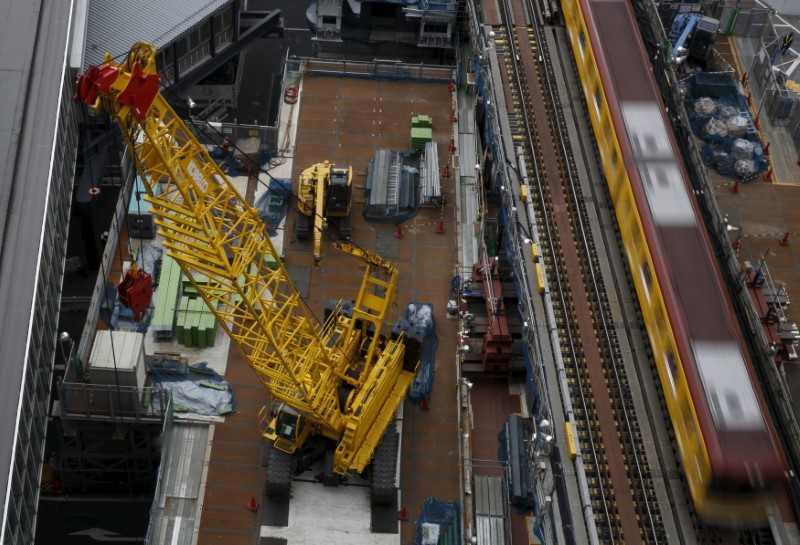By Stanley White
TOKYO (Reuters) - Japan's core machinery orders tumbled in December at the fastest pace in more than three years and companies expect orders to rise only marginally in January-March, raising concerns that recent gains in capital expenditure may taper off.
The 11.9 percent decline in December core orders, the largest fall since May 2014, was more than the median estimate of a 2.3 percent fall and followed a 5.7 percent increase in November.
The machinery orders come a day after gross domestic product data for October-December showed capital expenditure had risen for five consecutive quarters, although the last quarter's modest 0.7 percent undershot the median estimate for a 1.1 percent rise and now suggest this run of gains may not continue at the same pace.
Core machinery orders are regarded as an indicator of capital investment six to nine months ahead.
Economists say Japan's economy can continue to grow thanks to the strength in consumer spending and exports, but they also note that consumer prices, not business investment, will ultimately determine whether the Bank of Japan's bold experiment to generate inflation succeeds.
"Capital expenditure will not accelerate, but at the same time I don't expect it to start falling," said Norio Miyagawa, senior economist at Mizuho Securities.
"Business investment can continue to grow gradually, because companies have ample profits. The economy is not stuttering."
Companies surveyed by the Cabinet Office forecast that core orders, which exclude those for ships and from electric power utilities, will rise only 0.6 percent in January-March after a 0.1 percent decrease in October-December.
Orders from manufacturers tumbled 13.3 percent month-on-month in December, the largest decline since February 2016.
That followed a 0.2 percent decline in the previous month because of reduced orders from makers of metals and manufacturing equipment as well as makers of nuclear fuel.
Non-manufacturers' orders fell 7.3 percent, following a 9.8 percent gain in November due to declines in orders from retailers and wholesalers.
For January-March, manufacturers expect their orders to fall 5.7 percent, while non-manufacturers expect their orders to rise 7.4 percent.
Investors will get another chance to measure the health of Japan's economy when Reuters releases its Tankan business sentiment survey on Feb. 19. Last month manufacturers' sentiment improved to the highest in 11 years.
"Looking ahead, firms are reporting the most severe capacity shortages since the early 1990s," said Marcel Thieliant, senior Japan economist at Capital Economics.
"The upshot is that non-residential investment should continue to expand this year. We've penciled in a 2 percent rise."
Since taking office in late 2012, Japanese Prime Minister Shinzo Abe has used tax breaks and other incentives to encourage more domestic capital investment.
Companies were slow to respond at first but in recent years several indicators have shown consistent gains in capital expenditure.

Some companies are also spending on technology to deal with chronic labor shortages caused by Japan's shrinking and rapidly ageing population.